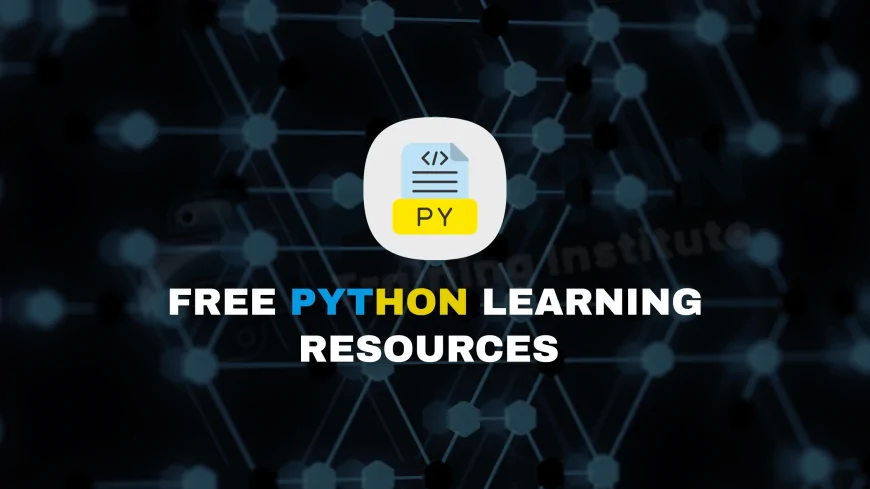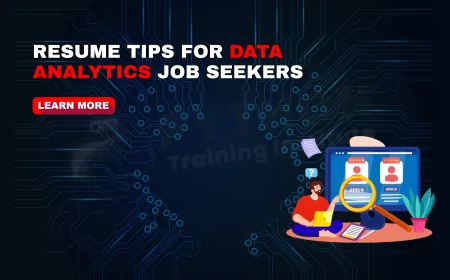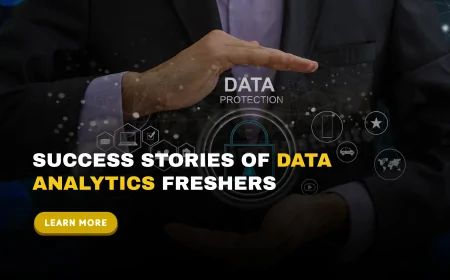Free Resources to Learn Python in Pune | Best No-Cost Python Courses Available in Pune
Explore top free resources in Pune to learn Python—online tutorials, local meetups, workshops, college labs, and open-source projects. Start coding for free today!

Table of Contents
- Pune Python Community Groups
- Free Local Workshops & Events
- College-based FOSS & Python Labs
- Top Free Interactive Online Courses
- Open-Source Tools & Practice Platforms
- Pune Python Open‑Source Projects
- Mentorship & Peer‑Programming Opportunities
- Global Free Communities
- Self‑study Plan & Learning Tips
- FAQs
- Conclusion
1. Pune Python Community Groups
PythonPune is the largest local community, boasting over 14,000 members on Meetup and a lively Google Group for asking questions, sharing resources, and joining discussions :contentReference[oaicite:3]{index=3}.
Highlights:
- Monthly meetups featuring newcomer talks and expert sessions.
- Volunteer-led open-source sprints (e.g., meetup-talks, linkstatus) in their GitHub repository :contentReference[oaicite:4]{index=4}.
- Supportive environment for first-time speakers to present their work.
2. Free Local Workshops & Events
Pune hosts numerous free or donation-based Python events:
- Townscript often lists free Python/data science workshops in Kharadi or Shivajinagar—e.g., ongoing Python series since early 2024 :contentReference[oaicite:5]{index=5}.
- PythonPune meetups include project hack-nights, collaborative code reviews, and occasional Django Girls-style beginner events :contentReference[oaicite:6]{index=6}.
- COEP’s FOSS Lab hosts periodic coding sessions, including Python-focused tutorials and spoken tutorials :contentReference[oaicite:7]{index=7}.
3. College‑based FOSS & Python Labs
Colleges like COEP have active Free Software User Groups (COFSUG) that open their labs and mentorship to public learners. They regularly conduct sessions on Python workshops—ideal for beginners seeking hands-on labs :contentReference[oaicite:8]{index=8}.
4. Top Free Interactive Online Courses
Pune has emerged as a major educational and IT hub, offering diverse Python learning opportunities — both free and paid. Whether you're a student, working professional, or career switcher, there are numerous interactive online Python courses tailored to your goals. These platforms combine live instruction, real-time code editors, self-paced modules, and hands-on projects to provide job-ready skills.
Why Choose Interactive Python Learning in Pune?
- Real-Time Coding: Practice Python in-browser without installations, ideal for beginners.
- Live Instructor Support: Courses from institutes like Webasha, Ethans Tech, and Seed Infotech include live mentorship sessions.
- Flexible Learning: Evening, weekend, and self-paced formats suitable for working professionals.
- Job-Focused Curriculum: Many platforms include placement assistance, mock interviews, and resume building.
- Local + Global Platforms: Blend of Pune-based institutes and global platforms like Coursera, Codecademy, and Great Learning.
Top Features of Python Resources in Pune
- Hands-On Projects: Apply skills via capstone projects in web dev, automation, data science, or scripting.
- Certifications: Many courses offer completion or industry certifications (NASSCOM, Microsoft, etc.).
- Recorded Sessions: Missed classes are available as video recordings for revision and review.
- Community Access: Get support through Telegram groups, Discord, WhatsApp channels, and mentor Q&A forums.
- Affordable to Premium Tiers: Options range from free platforms to paid job-assured bootcamps.
Who Can Benefit?
- Engineering & IT Graduates aiming for entry-level software roles.
- Working Professionals looking to switch to Python-based domains (AI, DevOps, ML).
- Non-CS Students like biotech, commerce, or mechanical graduates entering tech via Python.
- Entrepreneurs & Freelancers building apps, scripts, or automation tools.
With Pune’s strong technical ecosystem and rising demand for Python developers, choosing the right mix of interactive online learning resources can set you on a high-growth career trajectory. Many learners start with free resources and later invest in structured, mentor-led courses for job assurance.
5. Open‑Source Tools & Practice Platforms
Maximize your learning with these free tools:
- VS Code / PyCharm Community Edition: Free IDEs ideal for Python development.
- Jupyter Notebook: Interactive notebook, essential for data science and projects.
- GitHub: Host code, collaborate via issues, and explore Pune community repos.
- Repl.it / Google Colab: Free online interpreters—great for experimentation.
- Codecademy’s free Python track: Fundamentals and small projects at no cost.
6. Pune Python Open‑Source Projects
Contribute and learn by reviewing code in projects like:
- python-workshop repo by PythonPune—contains starter scripts and exercise prompts :contentReference[oaicite:14]{index=14}.
- linkstatus and readit (bookmark tools)—good for small real-world practice :contentReference[oaicite:15]{index=15}.
Joining GitHub discussions for initial contributions can rapidly improve skill and confidence.
7. Mentorship & Peer‑Programming Opportunities
- PythonPune Mentorship Circles: Seasoned developers volunteer to mentor complete beginners; announced via Meetup or Google Group.
- Django Girls Workshops: Although global, Pune occasionally hosts free beginner-friendly Django events :contentReference[oaicite:16]{index=16}.
- College Peer Sessions: Colleges like COEP open labs where enthusiasts can connect with student mentors.
8. Global Free Communities
Tap into worldwide Python ecosystems with:
- Stack Overflow, Reddit’s r/learnpython: Free Q&A communities for Python queries.
- Discord/Telegram groups: Python-focused channels sharing resources and help.
- freeCodeCamp Forum: Global discussion/mentorship space supporting Pune learners :contentReference[oaicite:17]{index=17}.
9. Self‑study Plan & Learning Tips
Recommended progression over 6–8 months:
- Month 1—Syntax & Basics: Use learnpython.org + Mimo for daily drills (1 hr/day).
- Month 2—Core Libraries: Explore lists, dicts, file I/O, classes with interactive practice.
- Month 3—Git & Projects: Learn Git, join python-workshop repo, start first mini‑project.
- Month 4—Web Frameworks: Join Django/PythonPune events; try the Django Girls tutorial :contentReference[oaicite:18]{index=18}.
- Month 5—Data Science & Automation: Use Jupyter, numpy, pandas; build scraping or data‑logger projects.
- Month 6—Contribute & Learn: Submit an issue/PR to Pune repos; present at a PythonPune meetup.
📌 Tips:
- Stay consistent—learn 5–7 days a week.
- Track progress—use a learning journal or GitHub README.
- Network—meetups, code reviews, and peer-led study pay back exponentially.
FAQs
1. How do I join PythonPune?
Visit their Meetup or Google Group, RSVP to an upcoming event, and attend—open to everyone from beginners to pros.
2. Are PythonPune meetups really free?
Yes, all official meetups are free; they are funded by community volunteers and open to all members.
3. Do I need programming experience to start?
No—workshops like Django Girls and COFSUG introductory sessions cater to beginners.
4. Can I access college-based FOSS labs?
Yes, you can attend public events by COEP’s Free Software Users Group (COFSUG).
5. What’s the best free online platform for beginners?
learnpython.org and Mimo are excellent beginner-friendly platforms, while freeCodeCamp scales to full projects.
6. Are projects mandatory?
Yes—building mini-projects (games, scrapers) cements your learning and helps with portfolio-building.
7. How often do Pune Python events happen?
Expect 1–2 events per month on varied topics—check Meetup or Townscript regularly for updates.
8. Is there mentorship available?
Yes—PythonPune often pairs learners with mentors; check announcements or message organizers directly.
9. Which IDE should I use?
Start with VS Code or PyCharm Community and Jupyter for notebooks—both are free and powerful.
10. Can I ask questions online?
Absolutely—use the PythonPune Google Group, Reddit’s r/learnpython, and freeCodeCamp Forums.
11. How do I contribute to a project?
Start by suggesting small improvements—documentation, examples—through GitHub issues and pull requests.
12. What’s the value of attending meetups?
Besides learning, beyond coding, meetups expand networks, offer speaking opportunities, and build confidence.
13. Will community help land jobs?
Yes—project experience and visibility in community projects impress recruiters and mentors.
14. Do I pay for advanced tracks?
No—for basic and core Python, all listed resources remain free; paid content is optional into special areas.
15. How long to become job‑ready?
Typically 6–9 months with consistent learning, project work, community engagement, and problem-solving.
16. What languages/frameworks to learn after Python?
Explore Django (web), Flask, pandas (data), and eventually React/Angular for full-stack progression.
17. Are Python meetups still in person post‑COVID?
Yes—PythonPune consistently conducts in-person meetups, along with hybrid or online livestreams.
18. Can students from other cities join?
Online platforms welcome all; in-person sessions are ideal for Pune-based learners.
19. How to stay updated on events?
Follow PythonPune Meetup, Townscript, and COFSUG social media for timely updates.
20. Is it possible to learn without a mentor?
Absolutely—many succeed through self-study, online resources, and community Q&A support.
Conclusion
Pune offers an impressive mix of **free resources** for Python learners—local meetups, college labs, workshops, and global online tools—all accessible without cost. By combining hands-on coding, peer collaboration, and community events, you can master Python and build projects that stand out. With dedication and the vibrant support of the Pune Python ecosystem, you can launch a career or passion project with no investment beyond time and enthusiasm.
What's Your Reaction?
 Like
0
Like
0
 Dislike
0
Dislike
0
 Love
0
Love
0
 Funny
0
Funny
0
 Angry
0
Angry
0
 Sad
0
Sad
0
 Wow
0
Wow
0















